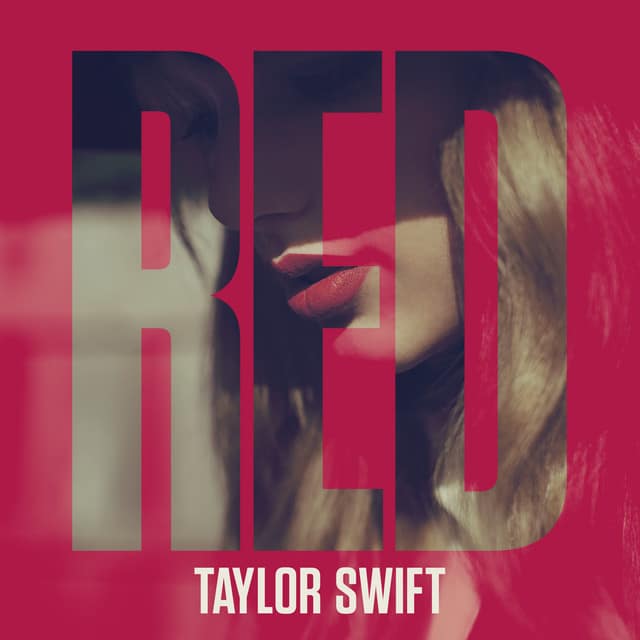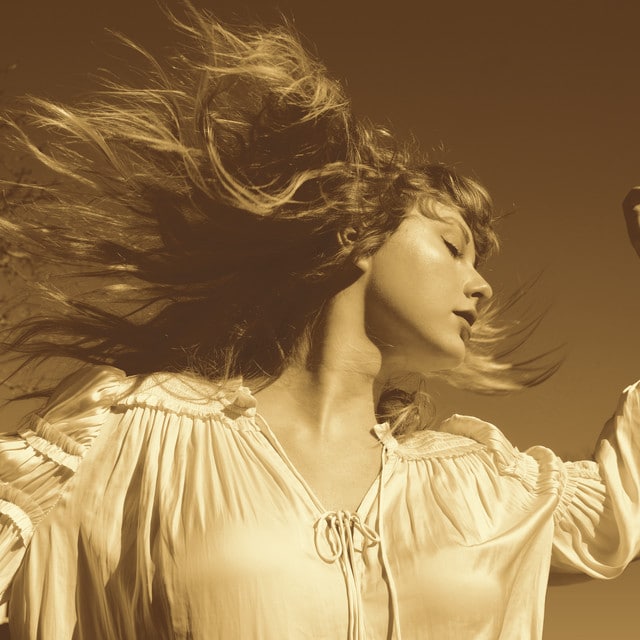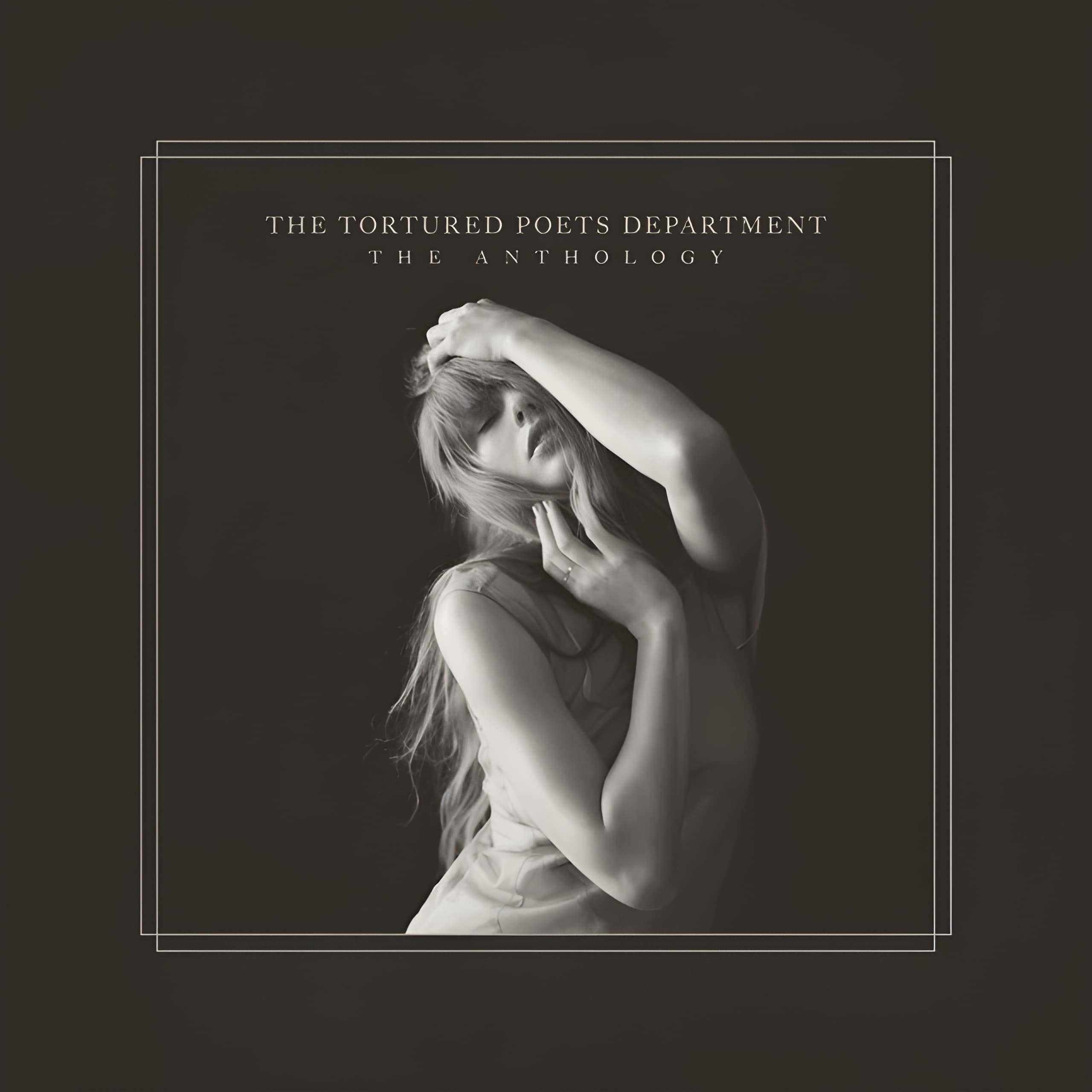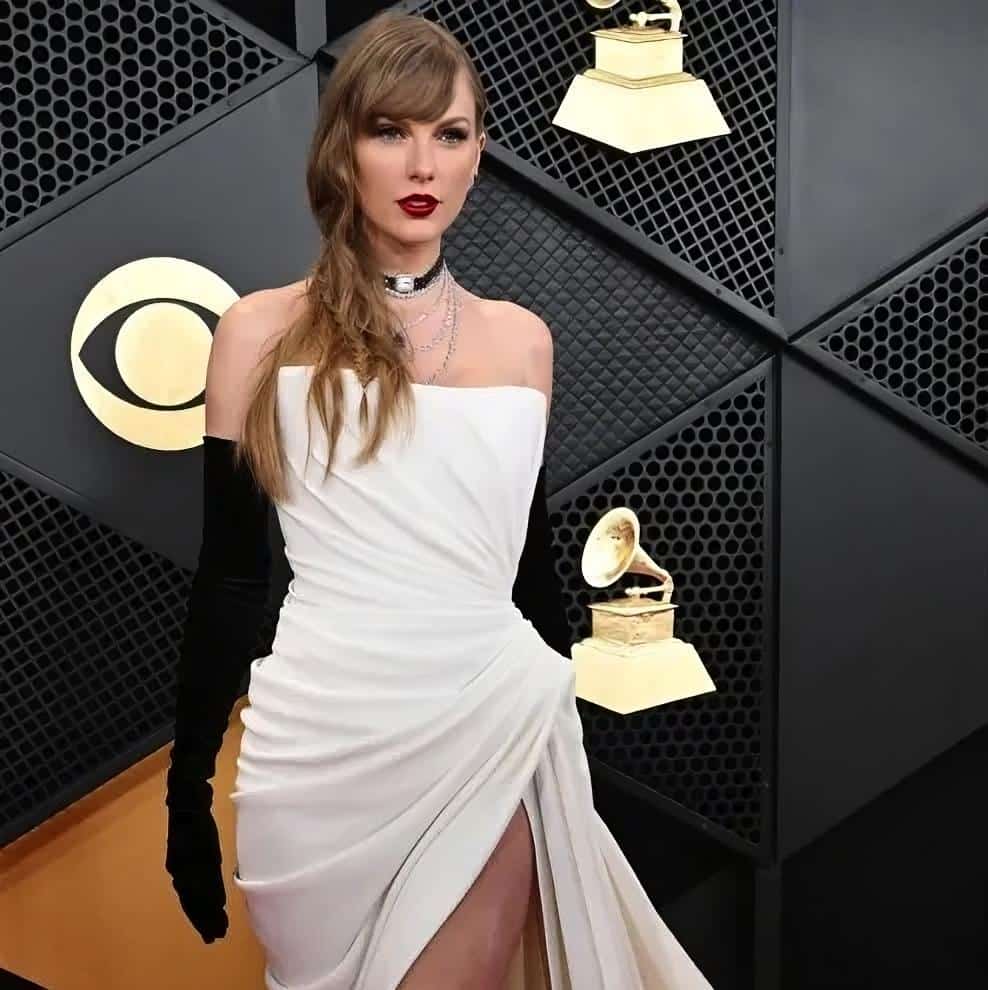Released: 2012
Label: Big Machine Records, LLC
Featuring: Gary Lightbody, Ed Sheeran
Stepping into the lyrical universe of Taylor Swift’s critically acclaimed album “Red” is akin to walking a poetic tightrope of heartbreak, recovery, and self-discovery. Released in 2012, “Red” stands as a seminal effort in Swift’s discography, marking her transformation from Nashville’s country sweetheart to a global pop phenomenon. Heart-rending tracks like “All Too Well” and “The Last Time” exhibit Swift’s exceptional storytelling abilities, while the anthemic energy of “22” and the raw defiance in “We Are Never Ever Getting Back Together” underline her versatile sonic palette.
Swift, a lyrical prodigy, paints vivid emotional landscapes with her words. Though “Red” is known for its diversified sound, it’s the intricate lyricism that anchors the collection — from the introspective “State of Grace” and the poignant “Sad Beautiful Tragic,” to the infectiously joyful “Starlight.” In “Red,” she explores the spectrum of love and longing, an exploration that resonates universally. The inclusion of original demo recordings and an acoustic version of “State Of Grace” further amplify Swift’s raw talent and authentic artistry.
Each song on “Red” is a lyrical deep-dive into the private universe Swift created during her transition from teenage stardom to adult artist. Every line holds a narrative, every melody conveys an emotion, and every chorus captures a moment. This makes “Red” not merely an assembly of songs, but a gallery of relatable experiences and emotions articulated through Swift’s lyrical genius. So, let’s get into it. From “State Of Grace” to “State of Grace – Acoustic,” here are the Delving into the Lyrics on ‘Red’ album by ‘Taylor Swift’.
1 State Of Grace
The lyrics, exploring the juxtaposition of innocence and experience, reassure us that vulnerably falling in love is a universal experience. In her lyrics, “We are alone with our changing minds/We fall in love ’til it hurts or bleeds, or fades in time”, Swift offers her listeners a peek into the ever-shifting emotional landscape of a romantic venture. The song, with its soft rock undertones, marks an evolution of Swift’s lyrical style, influencing the broader pop music landscape significantly. The embracing of duality, the romanticism of pain, the exploration of love as a “ruthless game”; these themes reoccurred throughout the expanse of her ‘Red’ album, marking Swift’s maturity as a songwriter.2 Red
The titular track off Taylor Swift’s heart-wrenching fourth studio album—an emotive cacophony of love, pain, and regret. Swift morphs the colors of the spectrum into emotive metaphors, painting the visceral landscape of a love story. “Loving him was red” is the crux of it all—love as vibrant, fiery, and intense as red. The profound lyrics “Losing him was blue, like I’d never known. Missing him was dark gray, all alone” underlines the spectrum of feelings post-breakup, showcasing Swift’s lyrical prowess to make the personal universal. It’s as if she has captured the feelings of every lovelorn soul in a symphony of hues. We’re left in no doubt of the dizzying highs and the devastating lows of a love that was destined to crash and burn—like “driving a new Maserati down a dead-end street.”3 Treacherous
The song captures the perilous allure of an intoxicating relationship, using clever imagery to portray the potent mix of fear and desire. Lyrics such as “This slope is treacherous” and “Your name has echoed through my mind” not only establish the song’s captivating narrative but also showcase Swift’s much-heralded ability to balance the personal and universal in her storytelling. The line “And I’d be smart to walk away, But you’re quicksand” hits with the brutal honesty typical of Swift’s oeuvre, spelling out the dangerous allure of love that is ill-fated yet irresistible. In this song, Swift illustrates beautifully the dichotomy between the head and the heart– the inherent human struggle between logic and desire.4 I Knew You Were Trouble.
5 All Too Well
6 22
7 I Almost Do
Pouring her heart out, Swift captures the familiar struggle of wanting to reach out to a former lover, but refraining due to the fear of reopening old wounds. The lyrics drip with a poignant resonance, reflecting on nights spent longing and the painful restraint it takes not to call. A standout line that embodies this emotional tumult is, “And I just want to tell you/It takes everything in me/Not to call you.” The brilliance of Swift’s songwriting lies in her ability to make universal experiences intimately personal. In this case, “I Almost Do” taps into the universal paradox of longing and restraint that often lingers in the aftermath of a heartbreak, resonating with anyone who has ever tried to move forward while a part of their heart remains in the past.8 We Are Never Ever Getting Back Together
9 Stay Stay Stay
The lyrics reveal a playful side of Swift, lending the song an air of authenticity that makes it truly standout. Swift’s lyrical prowess shines through as she handles themes of love, misunderstanding, and reconciliation with sincerity and light-hearted wit. The standout line, “You took the time to memorize me; My fears, my hopes, and dreams” showcases Swift’s ability to encapsulate the upswings of affection in a relationship, adding to the relatability that’s become her songwriting signature. In essence, the song is a testament to Swift’s maturing lyrical sensibilities and her grasp of creating engaging pop narratives.10 The Last Time
Features: Gary Lightbody
Swift’s storytelling prowess shines as she delves into the raw and gut-wrenching emotions of a love fraught with disappointment and heartbreak. The lyrics, layered with confessions of repeated heartbreak and a desperate plea for redemption, are a testament to Swift’s ability to articulate complex emotions. A standout verse, “This is the last time I’m asking you this, Put my name at the top of your list, This is the last time I’m asking you why, You break my heart in the blink of an eye,” drives home the torment of a love that remains unreciprocated despite repeated attempts at reconciliation. The song adds a depth of emotional resonance to Swift’s ‘Red’ Album.11 Holy Ground
Painted with a nostalgic brush, the song is a testament to Swift’s growth as a lyricist, capturing the ephemeral magic of love before it dissipated. The refrain, “And darling, it was good, never looking down. And right there where we stood was holy ground”, is a poignant sentiment, invoking images of a love that left an indelible mark. Just as a holy ground holds revered significance, so did the spaces that were inhabited by this love. Swift’s raw introspection, combined with her effortless knack for storytelling, makes “Holy Ground” a beautiful exploration of young love brimming with youthful hope, reckless abandon, and bittersweet retrospection.12 Sad Beautiful Tragic
Drenched in melancholy, the track explores the painful nuances of a doomed love affair characterized by its heartbreaking beauty and inevitability. Swift’s evocative lyrics, “Words, how little they mean when you’re a little too late,” capture the sentiment precisely, underscoring the power of timing in relationships and the profound regret of words left unsaid. The poignant imagery of standing by railway tracks with a face in a locket is an epitome of nostalgic longing, while the reference to demons resembling her adds a haunting layer to the narrative. In this song, Swift delicately balances the exquisite magic of love with its tragic demise, encapsulating the bittersweet truth of many relationships in our lives. “Sad Beautiful Tragic” is an ode to love lost, etched painfully and beautifully in the annals of Swift’s lyrical prowess.13 The Lucky One
Taylor Swift’s biting lyrics and cynical narrative stand in stark contrast to the lush, placid melody that underscores this song. The lyrics evoke an unnamed protagonist’s transformation from a naive newcomer to an embittered casualty of fame’s cruel game. With the brutally poignant verse “You don’t feel pretty, you just feel used/ And all the young things line up to take your place”, Swift exposes the toxic cycle inherent in the entertainment industry, marking it as a compelling highlight on ‘Red’. “The Lucky One” presents an unfiltered look into the darker side of stardom, suggesting that for all its glitter, fame can be a treacherous beast that devours its young.14 Everything Has Changed
Features: Ed Sheeran
A meditation on newfound love, its lyrics paint an intimate portrait of the euphoria that comes with connecting deeply with someone new. Swift and Sheeran delve into the delicacies of the early stages of a relationship, expressing their hope and anticipation in lines like “All I know is a simple name / Everything has changed.” This lyric, a recurring motif in the song, captures the transformative power of love, embodied in the simplicity of a ‘name’. Swift tenderly portrays the whirlwind of emotions that come from an unexpected love, with lyrics that underscore what’s at the heart of ‘Red’: the dizzying highs, the crushing lows, and the quiet moments in-between of love in its myriad forms.15 Starlight
The track shines through its vivid, cinematic storytelling. Swift transports us to a yacht club party in the summer of ’45, introducing us to Bobby and a carefree love story brimming with reckless abandon. The evocative line, “we were 17 and crazy, running wild, wild” speaks volumes about the youthful innocence and romantic nostalgia that Swift encapsulates into one charming melody. Despite underlying notes of transience and the inevitable passing of time, Swift reminds us to “dream impossible things”, maintaining an air of hopefulness throughout. All in all, “Starlight” is Swift’s magical recollection of young love, a sonically radiant echo of nostalgia and infectious dreams.16 Begin Again
Her masterful lyrics paint a story of shedding past pain and getting ready to love again, recounting the paradox of vulnerability and strength that often characterizes the aftermath of hurtful relationships. Swift’s elegant articulation of moving on reflects the duality of healing – the need for closure and the cautious optimism for new beginnings. The song has a standout line that hits you right in the feels: “I








